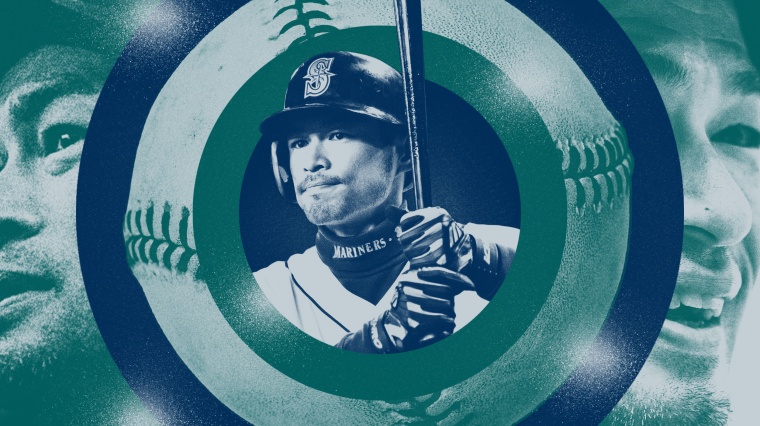SEATTLE, Wash. — Years before he would make his entrance into Major League Baseball, Japanese outfielder Ichiro Suzuki, then 22, made a trip stateside. Sporting a “Tom and Jerry" sweater and a giant grin, he met with NBA legend Michael Jordan in Chicago and sat in on the Bulls' practice. Jordan’s work ethic that day, Suzuki said, remains unforgettable.
“I just saw how serious Jordan was and how he was the guy who was doing it on his own and I saw the other guys following,” Suzuki recalled to NBC Asian America, speaking through longtime translator Allen Turner. "That really had an impact on me."
He didn’t know it then, but the visit would eventually be seen as a meeting between two American sports legends.
Now, more than a quarter century later, Suzuki himself is set to be inducted into the Seattle Mariners' Hall of Fame this coming weekend, the first Asian player in the team’s history to do so. Suzuki — more popularly known as Ichiro — is also widely expected to become the first Asian player inducted into the Baseball Hall of Fame in Cooperstown when he becomes eligible in 2025.
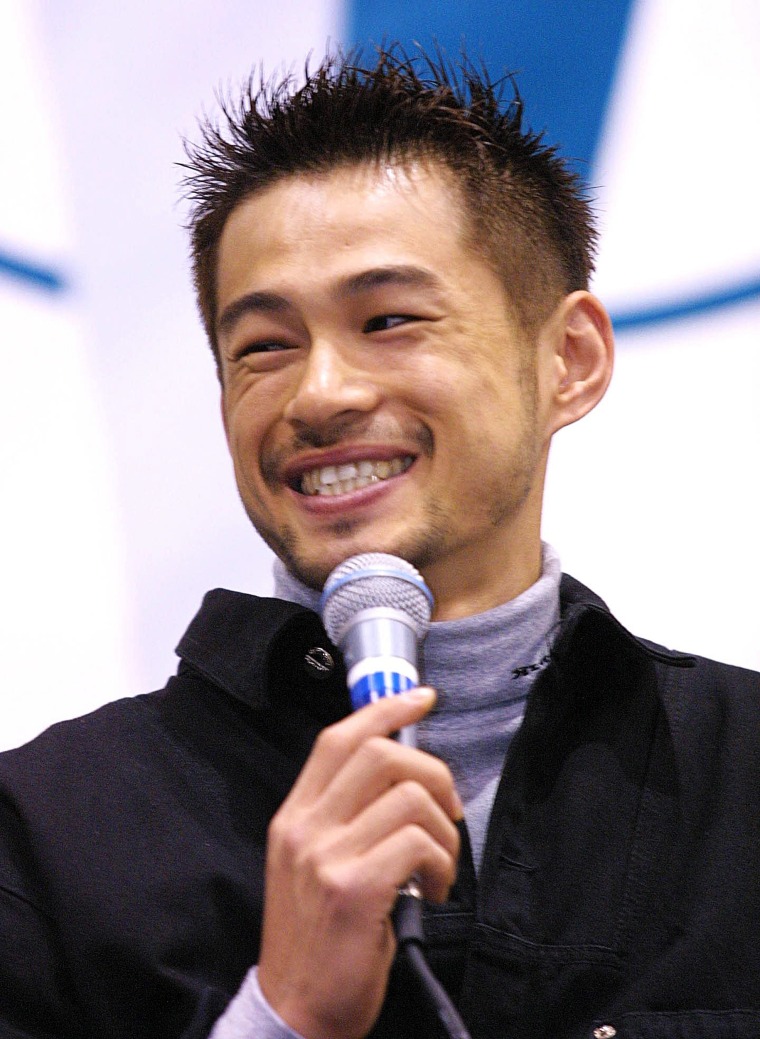
With that in mind, he's been doing a lot of reflecting on his 19-seasons in the American big leagues.Making his 2001 MLB debut with the Mariners, Suzuki blazed a trail as the first Japanese position player, or nonpitcher, in the league. While fans are well acquainted with the 10-time All Star’s trail of accolades, they’re less aware of the more muted, difficult moments that Suzuki says he endured as a Japanese outfielder establishing himself in America’s favorite pastime.
“As a player from Japan, as a guy that had led the league in hitting all seven years, and then coming over being a first position player, I knew that I would be judged. And Japan baseball will be judged on how I did.”
Suzuki, on the pressures he carried with him his rookie year.
“I came over here after playing in Japan and everybody doubted me,” Suzuki said, who played nine seasons in his home country before signing with the Mariners. “But each step of the way. I was able to perform and show them what I could do. And they weren’t doubting anymore.
He added: “It was hard times. I had some times where I struggled a lot, but I was able to stay my course and be able to go at it head on and be able to overcome it. So I’m proud of that.”
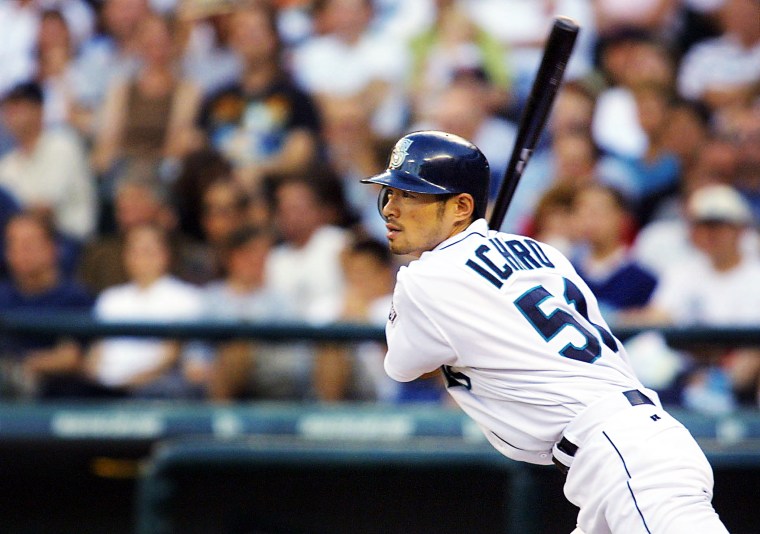
Suzuki, 48, will be honored in a series of events this weekend. He retired with the Mariners in 2019 at the Tokyo Dome in Japan, leaving the field to a standing ovation, and has nearly three decades of playing experiences to look back on.
Before he would go on to rack up 10 Gold Glove Awards, more than 3,000 hits, three Silver Slugger Awards and establish a hitting record across his career that placed him among baseball legends like Ty Cobb, Suzuki was a 27-year-old with a lot on his shoulders, he remembers.
At the time, more than 20 years ago, Suzuki had already established himself as one of the biggest names in Japan’s Nippon Professional Baseball League. However, with no other Japanese position players before him to pave the way, and Asian athletes still a rarity in the MLB, Suzuki said he was intensely aware of how American fans would perceive him. He said he didn’t set out to “perform for Asians,” but he knew his play would carry weight.
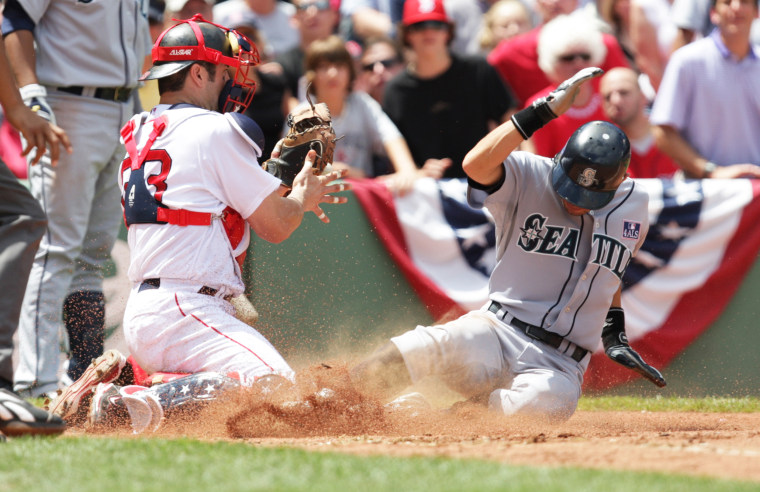
“As a player from Japan, as a guy that had led the league in hitting all seven years, and then coming over being a first position player, I knew that I would be judged. And Japan baseball will be judged on how I did,” Suzuki said. “If I wasn’t able to produce, then they would judge Japan baseball as being at a lower level. And so that pressure was there and that’s what I had to carry.”
Suzuki said that he was also cognizant of how his smaller size, at 5-feet-9 and 170 pounds, would lead many to be skeptical of his abilities, adding that after he came to the states, "People looked at me like, ‘Man, who is this skinny guy?” (The average MLB ballplayer is over 6 feet and weighs more than 200 pounds.)
Experts say that when examining the MLB, a league that has championed an intensely Western idea of masculinity, Asian players have had to work against a history of the emasculation of Asian men in the U.S. Asian players before Suzuki, like Dodgers pitcher Hideo Nomo, “had to go out there and prove themselves, to defy so many of the stereotypes that we have when it comes to Asian male bodies,” Christina Chin, an associate professor of sociology at California State University, Fullerton, previously told NBC Asian America.
“Asian and Asian Americans are always seen as not masculine enough,” Constancio Arnaldo Jr., an assistant professor of Asian and Asian American studies at the University of Nevada, Las Vegas, previously said. “Then you have a game that’s seen as part of the embodiment of this white masculinity.”
It’s partially why, Arnaldo said, that even undeniable standouts like Shohei Ohtani of the Los Angeles Angels, who's been compared to Babe Ruth for his hitting and pitching prowess, are confronted by a debate over whether they can be the face of American baseball.
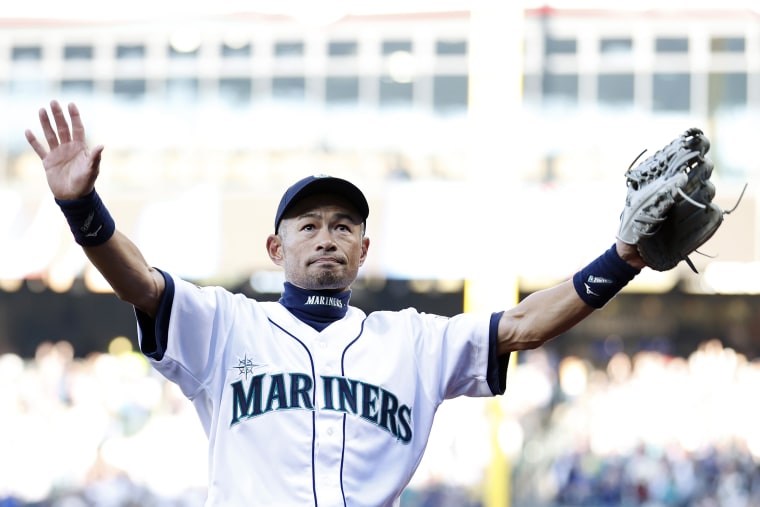
When Suzuki arrived in Peoria, Arizona, for spring training in 2001, the voices of skepticism were apparent, Turner said, describing those days as “chaos.” Turner, who joined the Mariners in 2000, has been there since the beginning of Suzuki’s MLB journey. Initially, Turner joined the Mariners to work with then-relief pitcher Kazuhiro Sasaki and doubling as a bullpen catcher, before working with Suzuki for the majority of his MLB career.
Turner remembers that spring training as a major transition. Suzuki was still acclimating to his new surroundings in a new country, learning to speak the language and adapting to a new culture, Turner said. Meanwhile, American fans were being introduced to an outfielder who did not fit the typical MLB build. Simultaneously, a crowd of reporters was examining his every move. Suzuki struggled.
“When you looked at him … you don’t think that this guy is going to be anything special. And then spring training, I remember he wasn’t hitting that well," Turner said. "That’s the only example that we had of him from the Americans.”
Suzuki was also exposed to a wide array of fans, many of whom were not accustomed to seeing Asian faces on the field. Turner remembers that at times, fans would throw things at Suzuki from the stands. In one game, a quarter hit him in the head.
“I never took it as racism. I never thought anything of it. But when I first came, of course there were a lot of eyes on me,” Suzuki remembers. “Many, many times, fans would yell, ‘Go back to Japan.’ That was just the norm.”
However, he said he was able to “perform early,” with successes like a home run in the team’s first road game that year. And by the end of the season, Suzuki was deemed the American League's rookie of the year.
“As I came back to Seattle, the cheers started getting louder and louder and louder as the season progressed,” he said. “More and more as they got to see me and I did my thing, fans accepted me.”
That first season proved no outlier, either. Suzuki held many stats after his first 10 years in the MLB, including 200 hits each season of that first decade, a major league record. Turner said this was largely in part to Suzuki’s “no days off” approach that involved a militant stretching regimen, helping him to remain largely without injury — a feat that once led the football icon Tom Brady to text Suzuki for his secrets.
Suzuki’s had proved to be memorable for other reasons, too — particularly his reputation as a master of smack-talk in multiple languages. He's been know to switch to Spanish to roast his Latino opponents, for example, before all parties dissolve into laughter. For Suzuki, it’s all part of communication and establishing deeper connections. Over the years, it’s made a lasting impression among the other international players. And one "funny experience" stands out.
“It was an All-Star game. I think it was Houston, where all the Latin guys from the All-Star Game got together to take a group photo,” Suzuki remembers. “Some of the guys called me over and said, ‘Ichiro! Come into picture!’ So I was in the picture with all the Latin guys. That was really special to me, that they included me.”
He added: “They’re happy that I’m trying to speak with them in their language, or to Americans, use some slang from how they speak. … It was just a way to communicate. And hopefully bridge that gap.”
Suzuki has remained, in many ways, the same athlete he’s always been. He still shows up to the ballpark daily to work out with the players. When the Mariners are on the road, Suzuki trains with the injured athletes. And it’s not uncommon to find him launching balls into the outfield or roasting players, like the up-and-comer Julio Rodriguez, during practice. He says, 21 years after his MLB debut, that he can now reflect on his career with pride. But perhaps way before that, game had already recognized game.
By spring training of 2002, Ichiro said he went to watch his basketball idol once again. This time, he recalls, Jordan was with the Washington Wizards, playing against the Phoenix Suns. Suzuki watched from five rows back.
“Michael Jordan, during the game, looked up at me and said, ‘Hey, what’s up, Ichiroooo!'” Suzuki said. “That was a great moment.”
